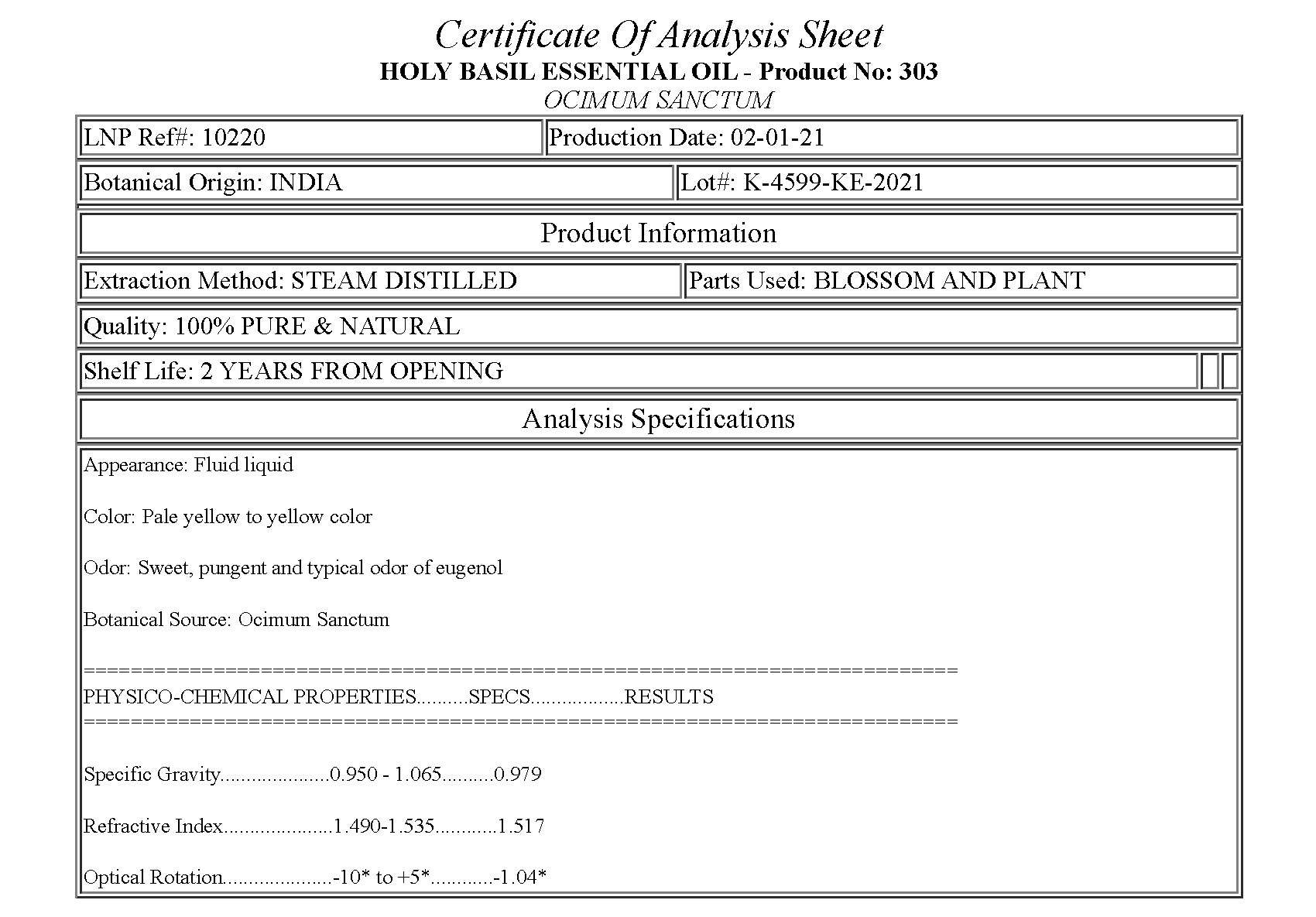Botanical Name: Ocimum sanctum
Part of Plant: Herb
Cultivation: Ethically Wildcrafted
Origin: India
Extraction Method: Steam distillation
Precautions: Avoid during pregnancy. Possible sensitization in some individuals. Use in moderation. Robert Tisserand advises skin sensitization (moderate risk), mucous membrane irritation (low risk). May have drug interacts with pethidine, MAOIS, SSRIs, anticoagulant medications. Contraindicated in major surgery, peptic ulcer, hemophilia, other bleeding disorders. Maximum dermal use level of 0.7% – 1.0%
Size: 1/6 oz. (5 ml)
Cathy’s Comments: This basil goes by many names: tulsi, sacred, and holy, mainly because in India it has been traditionally planted around doorways to banish evil spirits, and throughout Asia around temples, perhaps for similar reasons. What is interesting is that one of its main constituents, eugenol, which gives this oil a much more spicy clove-like aroma, is a powerful inhibitor of bacteria, insects, stress and pain…all reasons why one might seek out a “sacred space’ in which to rest and recuperate.
Botanical Name: Ocimum sanctum
Part of Plant: Herb
Cultivation: Ethically Wildcrafted
Origin: India
Extraction Method: Steam distillation
Precautions: Avoid during pregnancy. Possible sensitization in some individuals. Use in moderation. Robert Tisserand advises skin sensitization (moderate risk), mucous membrane irritation (low risk). May have drug interacts with pethidine, MAOIS, SSRIs, anticoagulant medications. Contraindicated in major surgery, peptic ulcer, hemophilia, other bleeding disorders. Maximum dermal use level of 0.7% – 1.0%
Size: 1/6 oz. (5 ml)
Cathy’s Comments: This basil goes by many names: tulsi, sacred, and holy, mainly because in India it has been traditionally planted around doorways to banish evil spirits, and throughout Asia around temples, perhaps for similar reasons. What is interesting is that one of its main constituents, eugenol, which gives this oil a much more spicy clove-like aroma, is a powerful inhibitor of bacteria, insects, stress and pain…all reasons why one might seek out a “sacred space’ in which to rest and recuperate.
